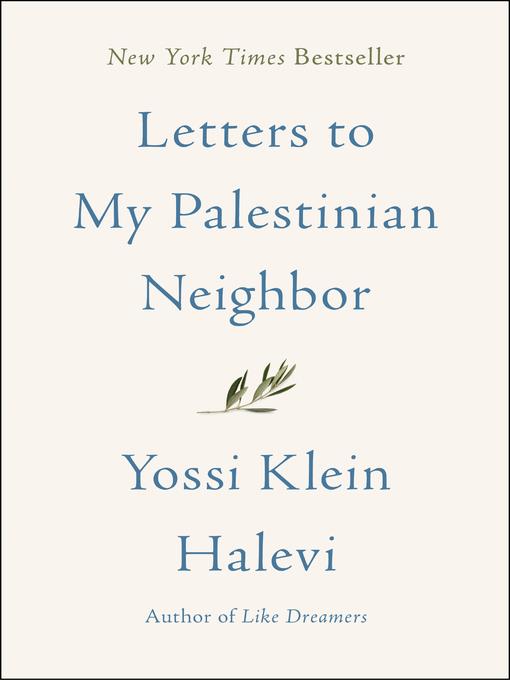
Letters to My Palestinian Neighbor
کتاب های مرتبط
- اطلاعات
- نقد و بررسی
- دیدگاه کاربران
نقد و بررسی

January 1, 2018
Author of the award-winning Like Dreamers, as well as Memoirs of a Jewish Extremist (he once associated with groups like the Jewish Defense League), Halevi left New York in the 1970s to help build the Jewish homeland. Now he wants to see it as morally responsible, here reaching out to Palestinians.
Copyright 2018 Library Journal, LLC Used with permission.

March 26, 2018
Halevi, codirector of the Muslim Leadership Initiative at the Shalom Hartman Institute, which teaches Muslim American leaders about Judaism and Israel, offers a poetic and moving account of “my experience as occupier” that asserts Israel’s legitimacy and evokes its emotional importance for Jews, but refuses to gloss over its flaws. Halevi’s goal is to open a dialogue with an imagined Palestinian neighbor living on the other side of a protective wall constructed in Jerusalem to deter terrorists. He frames his chapters as a series of letters to that neighbor that include both concise, balanced histories—of such topics as the history of modern Zionism and the occupation of the West Bank and Gaza—and his own memories of growing up an American Jew afraid that Israel would be destroyed in 1967, moving to Israel, and how his “romance with the settlement movement ended.” Halevi, who considers both Israel and Palestine to be “rightful claimants” to the territory for historical and emotional reasons, makes clear that he understands Palestinians’ perspectives. In that spirit, he asks his imagined correspondent for “respect for my people’s story” rather than to buy into positions advocated by the Palestinian government and media that deny the legitimacy of Jewish claims to the land and seek “to be free of Israel’s existence entirely.” In keeping with Halevi’s approach, this heartfelt, empathetic plea for connection and mutual acknowledgement is available as a free download in Arabic.

April 15, 2018
A plea for "radical goodwill" in the face of the seemingly intractable bad blood between Israelis and Palestinians.In Judaism, writes the philosophically adept Halevi (Like Dreamers: The Story of the Israeli Paratroopers Who Reunited Jerusalem and Divided a Nation, 2013), a senior fellow at the Shalom Harman Institute, there is one transgression so great that even fasting at Yom Kippur cannot atone for it: "desecrating God's Name." By his account, interacting with practitioners of other faiths strengthens and "sanctifies" the bond, forcing the recognition that there are many paths to truth and that, in the end, all that will be left of us is bones and souls. Coexistence has hitherto been sought by exclusion and separation, with Jews, Muslims, and Christians retreating into their separate corners in the Holy Land. Clearly that's not working, Halevi argues, and if every path toward a solution is fraught with problems, at least there's promise at the end. The author proposes some truly radical solutions, including reparations for Palestinians displaced from their homeland (and for Mizrahim, Jews forced to leave their Arab homelands for Israel in return) and a hard bargain for the intractable: "I forfeit Greater Israel and you forfeit Greater Palestine," a proposal likely to fire up opposition among the nationalist hardcore on both sides. More searchingly, Halevi urges that each camp look into its faith to determine where common ground can be found and, even more difficult, where in its doctrine barriers to peace are located: Can Jews give up land they believe sacred, and can Muslims accept the thought that non-Muslims can be equals? The author's reasoned if sometimes too hopeful suggestions for peaceful reconciliation are surely worth hearing out, though one can imagine the din that would accompany any public reading of his pages among the ranks of Hamas or the Likud.A good choice for any reader with an interest in Middle Eastern affairs, though perhaps unlikely to sway those whose minds are made up.
COPYRIGHT(2018) Kirkus Reviews, ALL RIGHTS RESERVED.

























دیدگاه کاربران